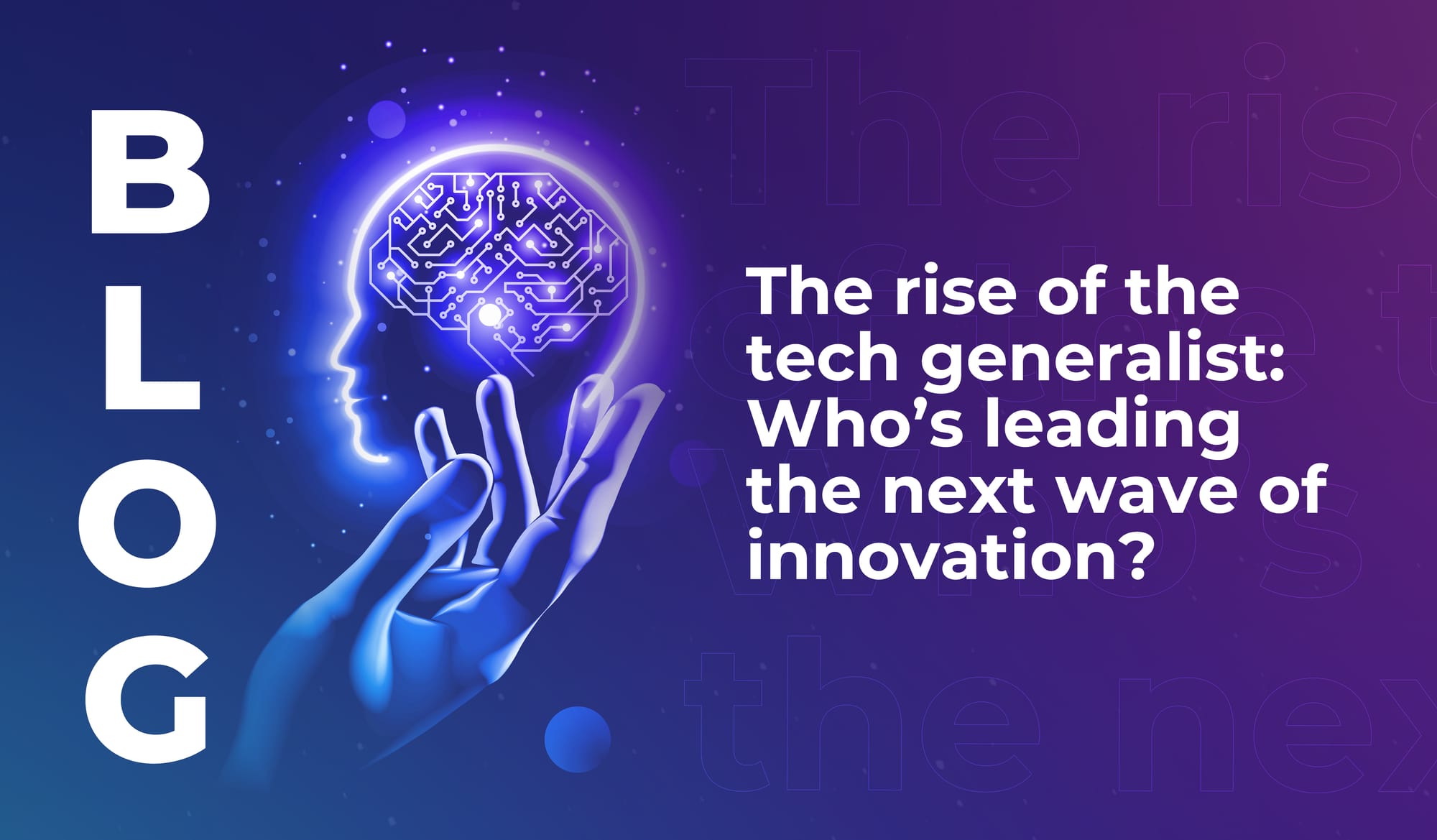
Tech careers with impact: The power of investing
If you’ve ever thought about becoming a tech investor, read this – learn why investors are the quiet force shaping the future of the industry.


LEAP is proud to facilitate partnerships across the tech industry. Since the first event in 2022, we’ve seen countless strategic partnerships and professional relationships grow as a result of in-person networking among the LEAP community.
Startups have partnered with investors; researchers and developers have partnered with tech companies; and C-suite leaders and entrepreneurs have developed mentorship relationships that are enabling individual careers to grow, while also driving the development of technology that can have a positive impact on our world.
We’re constantly in conversation with technology thought leaders and innovators – and they’ve taught us a lot about the power of partnership. So we thought we’d share some of their insights here, to help you focus on the transformative potential of collaboration – and encourage you to embrace partnership opportunities when they arise.
Nobody knows everything. And it’s when you bring together experts with different experiences, skills, and professional networks that the magic really happens.
Like when freestyle footballer Sean Garnier (Founder of Urbanball) partnered with digital collectibles platform EX-Sports, led by Toli Makris. Garnier knew his sport inside out, and Makris had extensive experience in e-sports and sports promotion.
“I joined forces with EX-Sports to bring our shared vision of creating a comprehensive street football ecosystem to life,” Garnier told us. “Together, we introduced Urbanball Fight (UBF), a new football sport, and developed a platform that offers resources, support, and exposure to talented young footballers. The platform integrates technology throughout, from the app to talent management and the use of NFTs and gaming.”
Makris added: “For the past 20 years, I have been active in the sports industry as both a fight promoter and technology provider for sports federations. My role as a fight promoter required me to manage every aspect of an event or tournament, including infrastructure, matchmaking, ticketing, TV distribution, streaming, and more.”
“I spent 15 years promoting Muay Thai in Thailand and then globally, and I am proud to have helped it become recognized by the Olympics. This experience exposed me to the technology challenges and disparities faced by niche sports like Muay Thai, inspiring me to create EX-Sports. Over the last 6 years, I have been working with various sports federations as their technology partner. I learned about Urbanball through Sean Garnier in 2021 and, after understanding his vision for the company and street football, I invested in a partnership as I was inspired to support and be a part of it.”
They each brought their own experience and skill – and used it to develop a tech business with the potential to scale and thrive.
Someone else we’ve seen build incredible partnerships time and time again is Phnam Bagley (Space Architect at Nonfiction Design). When we interviewed her for the LEAP blog, she shared a long list of partnership projects she and her team were working on at the time:
“We are working on a brain implant system with Rice University that helps people suffering from clinical depression. We just launched a wearable with UC Berkeley scientists that helps people fall asleep and stay asleep all night. We’re working on a space kitchen that can be used in microgravity for deep space missions, like going to Mars. We’re working on menopause symptom relief, various wearables and experiences that support mental health. We’re also working on heart and cancer cell removal equipment for surgeons. And I’m teaching creativity and storytelling to police officers, senior members of the military and NASA scientists.”
When we spoke to Natalie Samovich (non-executive Director at Resilient Ventures), she highlighted the need for partnerships between organisations in the energy sector and tech companies working in the digitisation space.
“Digitalisation in energy and evolving advanced connectivity with new edge driven architectures are bringing new opportunities into the sector,” Samovich noted. “These developments are expected to facilitate new business models within the energy sector. It is positively impacting many energy intensive sectors and holds promise for spinoff solutions.”
“Advanced manufacturing enabled by digital solutions (Industry 4.0), cyber physical systems at MCPV are expected to advance competitive level through self learning and AI and Industrial IoT models. There is a big effort on building alliances, scaling up supply chains and enabling ecosystems which are advancing at a fast pace.”
This brings up an important point for business across all sectors: for all businesses, building alliances with tech partners that are developing industry-transforming solutions can help you get ahead. And for tech companies, building alliances with companies in industries (like energy) that require rapid and imminent transformation also provides a competitive edge – because you’ll be working on critical projects, and proving your worth in a fast-growing sector.
When we’re talking about the power of partnerships, we can’t neglect to mention the importance of partnering with the public – the people who use tech, and whose lives are affected by it.
Speaking on the relationship between smart city developers and city residents, Kris Libunao (Executive Director and Chief Sustainability Officer at SmartCT) said “it’s critical to promote collaboration.”
“We should push for co-creating solutions to address the city’s challenges and tap into collective wisdom by involving a variety of viewpoints, ensuring that these collaboration efforts are being sustained. And last but not the least, promoting inclusion is crucial and should not be an afterthought by the way private and public organisations approach smart cities. Everyone should have access to smart city development, regardless of socioeconomic status or technological proficiency.”
And Reena Sooch (Head of Digital and Connected Health at Ipsos) explained why it’s so important for tech developers to partner with researchers in order to understand their markets. In health tech, for example, a report produced by Ipsos in collaboration with Elsevier Health revealed that clinicians are experiencing burnout as a result of adopting new technologies. This is valuable information for companies developing tech for health services – showing that new tech doesn’t always make life easier for healthcare professionals.
The LEAP community continues to show us that partnerships are crucial for the development of effective and useful technologies that have a positive impact on users’ lives.
And the key ingredient for a good partnership (no matter who’s involved) is trust. Partnerships should grow from a common vision and a desire to learn from different experiences and viewpoints – and partnerships built on those foundations can drive profitability and growth in the future.

If you’ve ever thought about becoming a tech investor, read this – learn why investors are the quiet force shaping the future of the industry.

Tech generalists will enable emerging technologies to integrate across industries and societies in meaningful ways. We still need specialists – but we also need big-picture people.

Discover three tech sectors facing a talent shortage this year. Could you find your ideal role in a high-demand sector like cybersecurity, cloud computing, or artificial intelligence?

If you’ve ever thought about becoming a tech investor, read this – learn why investors are the quiet force shaping the future of the industry.

Tech generalists will enable emerging technologies to integrate across industries and societies in meaningful ways. We still need specialists – but we also need big-picture people.

Discover three tech sectors facing a talent shortage this year. Could you find your ideal role in a high-demand sector like cybersecurity, cloud computing, or artificial intelligence?